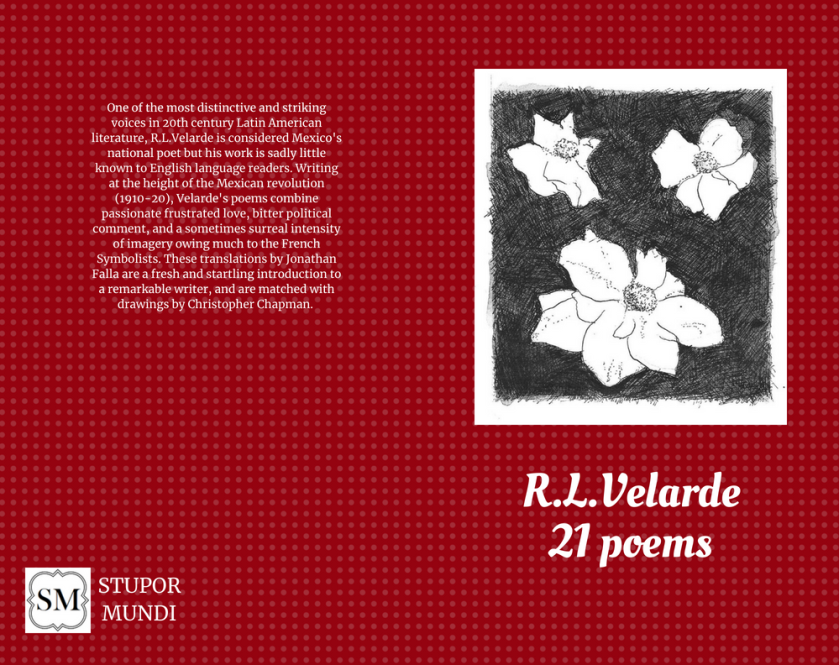TWENTY ONE POEMS
translated by Jonathan Falla
with drawings by Christopher Chapman
This little book is a set of twenty one translations from the Spanish, accompanied with pen drawings by my old friend Chris Chapman, who died in December 2023.
From the Introduction:
Ramón López Velarde (1888-1921) is one the outstanding figures of early twentieth century literature in Latin America. He is little read in English, although he has always had a steady band of admirers, including Octavio Paz and, more recently, Michael Schmidt.
His short life had a fin de siècle poignancy. Born into a family of lawyers and landowners, Velarde was schooled in seminaries and then trained in law, moving to Mexico City to find work, while starting to publish poems and essays. Caught up in the ideals of the Mexican revolution, he was unable to support it in practice: he was too bound to the Catholic traditions of his family.
For a while he dithered between the capital and the provinces, but could not resist the lure of a literary career. Settling in the capital for good in 1914, Velarde relished cosmopolitan and cultured city life, but always pined for the tranquillity of his hometown, Jerez, which he never saw again. Velarde died in 1921 aged just thirty-three, of pneumonia and pleurisy, in a lodging house in Mexico City. His death by suffocation had been foretold by a gypsy woman, but its immediate cause was his going on a protracted after-theatre walk on a cold night without an overcoat, because he was enjoying a conversation about Montaigne. At least, that is the usual explanation; it has been suggested that he actually died of syphilis.
His themes are the longed-for tranquillity of provincial life, the tumult of revolution, and love experienced as unrequited passion for unattainable women. Though Velarde’s poetry displays a conservative faith that is thoroughly unfashionable now, his best poems achieve an extraordinary intensity of feeling. Love poems such as For this modest style are intoxicated, while betraying a furiously repressed and jealous eroticism. Human love is often entangled with religious devotion and can be bitter in its frustrations. Sometimes that bitterness provokes a baroque symbolism, as in Ants, with its final horrible demand to be given the beloved’s lips, to let the creeping ants of his desire crawl across her face, before death and decay claim her.
His own libido is in constant tension with a severe and self-denying morality. But then, the tensions can be intensely enjoyable especially in memory, nowhere more than in the delightful My cousin Águeda, in which the poet recalls being quite undone by the presence of his demur green-eyed cousin, dressed in black, knitting by the sideboard.
Here is Chris Chapman’s preliminary sketch for one of the drawings:

The book was originally published by The Bakehouse arts centre, Gatehouse-of-Fleet, near Dumfries (Scotland), to coincide with a reading of Velarde, Pavese and Montale translations on October 29th, 2011.
It is now re-issued in paperback and as an e-book from Stupor Mundi Books, available through Amazon, Barnes & Noble, Kobo and all the usual digital outlets.
